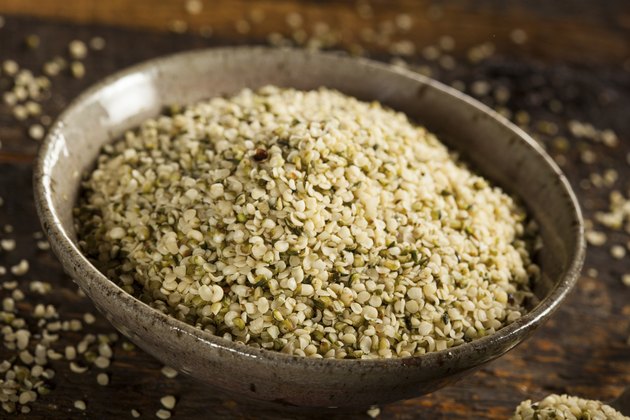Hemp, a multipurpose crop with a myriad of purposes ranging from textiles to overall health health supplements, has seen a resurgence in desire globally, which includes in Canada. With the legalization of cannabis for leisure and medicinal applications in Canada, hemp cultivation has obtained prominence due to its non-intoxicating properties and numerous industrial programs. Having said that, like any agricultural endeavor, hemp farming in Canada is subject to rules aimed at making certain compliance, high quality control, and buyer protection. In this short article, we delve into the regulatory landscape governing hemp farming in Canada, checking out licensing requirements, cultivation rules, and the evolving authorized framework.
History of Hemp Regulation in Canada:
Hemp has a long background in Canada, courting again to the early colonial time period when it was cultivated for fiber and meals. Even so, its cultivation witnessed a drop in the twentieth century owing to regulatory constraints and misconceptions about its association with psychoactive cannabis. The turning stage came with the passage of the Industrial Hemp Polices in 1998, which allowed licensed cultivation of hemp with small THC (tetrahydrocannabinol) material. Due to the fact then, hemp farming in Canada has been controlled less than the Hashish Act and its accompanying laws.
Licensing and Regulatory Bodies:
To interact in hemp cultivation in Canada, folks and entities will have to obtain a license from Wellbeing Canada, the federal department dependable for overseeing hashish rules. Well being Canada offers unique styles of licenses based on the supposed routines, which include cultivation, processing, and promoting of hemp products and solutions. Future hemp farmers have to endure a thorough application course of action, which incorporates track record checks, safety clearances, and compliance with stringent regulatory requirements.
Cultivation Suggestions:
Hemp cultivation in Canada is governed by stringent recommendations aimed at ensuring the integrity and high-quality of the crop though reducing the danger of diversion to illicit marketplaces. Essential polices include things like constraints on THC written content, obligatory testing of hemp samples to verify compliance, and adherence to Fantastic Agricultural and Collection Techniques (GACP). Farmers are also expected to sustain detailed data of their cultivation pursuits, such as seed sources, cultivation procedures, and harvest information.
internet :
One of the central regulatory elements of hemp cultivation in Canada is the restriction on THC written content. THC is the psychoactive compound uncovered in hashish plants, and hemp kinds cultivated for industrial purposes have to incorporate significantly less than .3% THC on a dry body weight basis. This threshold distinguishes hemp from psychoactive hashish varieties and is crucial for making certain compliance with equally domestic and international laws. Health and fitness Canada conducts frequent inspections and testing to validate THC degrees in hemp crops, and non-compliant crops could be topic to seizure and destruction.
High quality Control and Screening:
Good quality manage is paramount in the hemp marketplace to be certain purchaser protection and product or service consistency. Wellness Canada mandates demanding testing of hemp samples for various parameters, such as THC information, CBD (cannabidiol) degrees, pesticides, heavy metals, and microbial contaminants. Certified producers have to make the most of accredited tests laboratories and adhere to standardized testing protocols to sustain compliance. By employing sturdy quality regulate measures, regulators intention to safeguard general public wellness and sustain the integrity of the hemp marketplace.
Export and Import Regulations:
Canada is a important participant in the worldwide hemp sector, exporting a extensive vary of hemp-derived solutions, such as fiber, seed, oil, and CBD extracts. Having said that, international trade in hemp is topic to sophisticated regulations, which include import prerequisites imposed by desired destination nations around the world. Health Canada presents direction to exporters on compliance with worldwide rules and helps in getting the necessary permits and certifications. In the same way, importers of hemp merchandise into Canada ought to guarantee compliance with domestic polices, including licensing specifications and top quality criteria.
Emerging Tendencies and Long term Outlook:
The hemp market in Canada is dealing with speedy expansion and innovation, driven by escalating consumer demand for hemp-derived products and improvements in agricultural technologies. With the recent legalization of cannabis edibles and extracts, there is expanding curiosity in hemp-derived CBD merchandise for therapeutic and wellness purposes. On top of that, analysis into novel hemp cultivars with enhanced properties, these as better CBD content or improved fiber quality, holds promise for growing the market place and diversifying products offerings.
Summary:
Hemp farming in Canada is ruled by a complete regulatory framework aimed at making sure compliance, top quality command, and consumer security. By means of licensing specifications, cultivation guidelines, and stringent quality command measures, regulators attempt to maintain the integrity of the hemp market though fostering innovation and economic advancement. As the field carries on to evolve, stakeholders will have to continue to be abreast of regulatory developments and most effective techniques to navigate the elaborate landscape of hemp cultivation in Canada